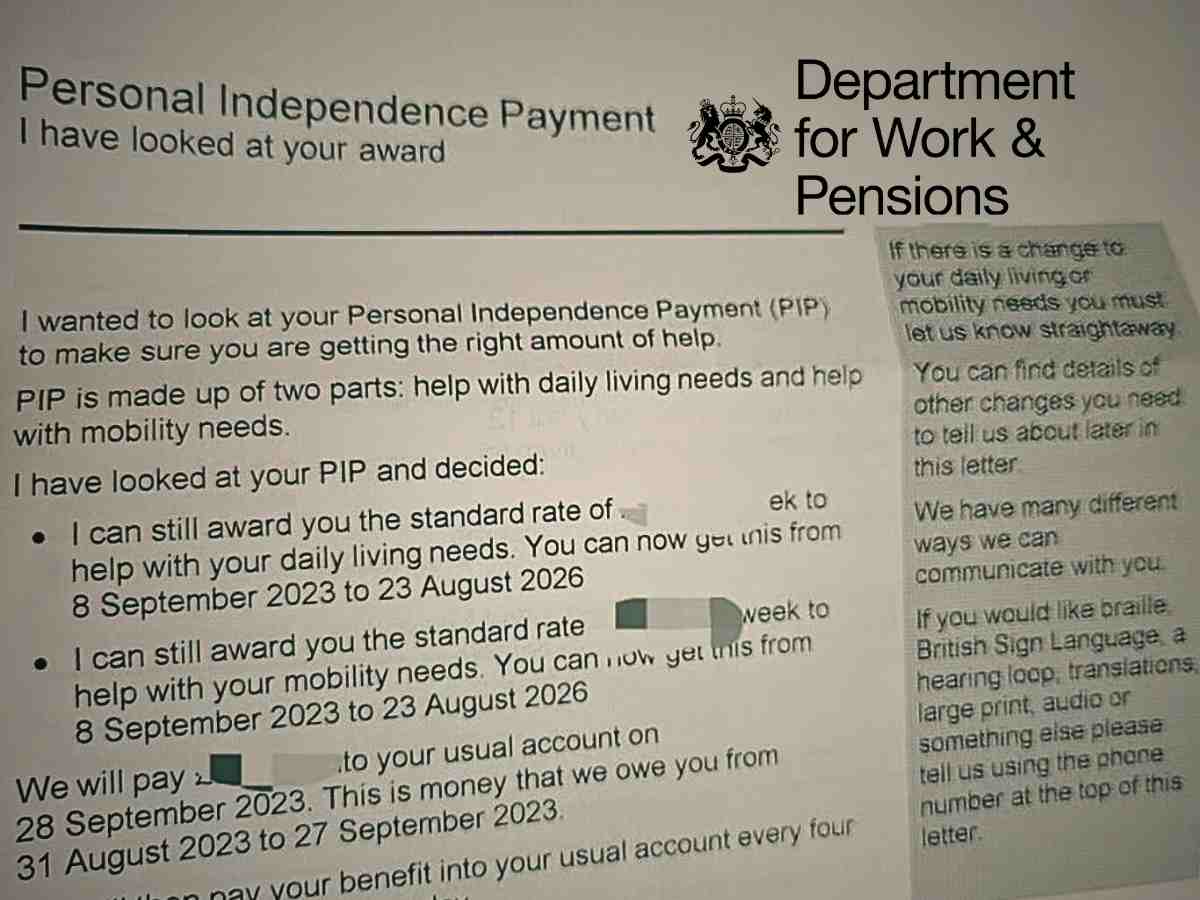The Department for Work and Pensions (DWP) will be putting more decisions on Personal Independence Payment (PIP) reviews into the hands of Jobcentre staff.
It means that non-medically trained DWP staff could soon be presiding over whether the department will continue paying the disability benefit to some claimants.
DWP PIP: changes ahead for award reviews
The department subjects some people claiming DWP PIP to a review. This is to determine whether it will continue paying them the disability benefit, or whether it will increase or decrease the amount of it the claimant receives. How often and when the DWP carries this out will depend on the length of a claimants award.
However, currently, the department has a huge backlog of these. Benefits and Work submitted a Freedom of Information (FOI) request to find out the numbers of DWP PIP claimants the department has outstanding reviews for. It stood at 392,000 at the end of May 2024.
Based on the current rate the department is processing these, the outlet pointed out it could take nearly ten years to clear these. Given this, the DWP has been recruiting additional case managers to carry them out.
On top of this, the new Labour-led DWP is making a series of changes designed to:
increase efficiency and move cases through the system more quickly
For instance, one measure to streamline the process it is introducing is to reduce in-person assessments. It will do so by allowing healthcare professionals to carry them out over the telephone instead. In addition to this, Timms also indicated the DWP has introduced a:
change for customers with the most severe conditions, on the highest level of support, who now receive an ongoing PIP award which is only subject to a light touch review every 10 years.
Currently, the DWP will implement a review after ten years for some claimants. This is for those where it has determined their condition is unlikely to change in the long-term. Evidently, these were the DWP PIP claimants Timms was referring here. However, he didn’t disclose quite what this “change” has or will entail for these claimants.
Most notable among the new plans however, was Timms’ revelation that the DWP intends to give case managers more power over award reviews.
Putting decisions in the hands of DWP staff
DWP minister Stephen Timms revealed this in an answer to a parliamentary written question. Labour MP Katie White tabled this at the start of September. Specifically, he told White that:
Where sufficient evidence/information is available, Case Managers can make decisions on reviews, avoiding the need for a functional assessment, which means many customers receive a decision faster.
In other words, it means that DWP Jobcentre staff could soon be deciding whether a claimants PIP will continue or not.
Timms suggested that this could only take place where these case managers already have sufficient health-related information to make this call. However, the fact remains that Jobcentre staff do not typically have medical training.
Therefore, it means that non-medically trained staff will be interpreting the health evidence of DWP PIP claimants. Ultimately, from this, they will decide whether they will continue getting the benefit.
Purportedly, Timms’ response implied the move is to reduce the need for full assessments.
A broader shift for DWP PIP
Benefits and Work has pointed out that the decision follows pilots that the department carried out. It did so between February and June this year. In these, case managers made decisions on claims, without PIP applicants attending full assessments.
However, it should be noted that this was for new DWP PIP claims, rather than award reviews.
As the outlet reported:
In the first pilot the case managers only contacted a health professional for advice about a claim if they felt they needed to.
In the second pilot the case manager had to consult with a health professional in every case.
The claimant was not involved in the consultation in either pilot.
As a result of the pilots, the DWP concluded that the system worked best if consultation with a health professional took place in every case.
They also concluded that case managers “could potentially make more decisions without a health assessment if they had more information.”
The next step in the project, which may be happening now, was to look at allowing case managers to also contact claimants to gather more information.
Ostensibly then, Timms’ disclosure of the new DWP PIP plans for reviews seems to be part of a broader shift. In particular, this is to place more power into the hands of DWP Jobcentre staff. Obviously, this could be cause for concern.
While this may mean the department forcing fewer claimants through lengthy, intrusive assessments, it may also mean more cases where the DWP wrongly denies PIP claimants the continuation of their benefits. If this is the case, more chronically ill and disabled people could soon be losing this vital benefit.
Featured image via the Canary




